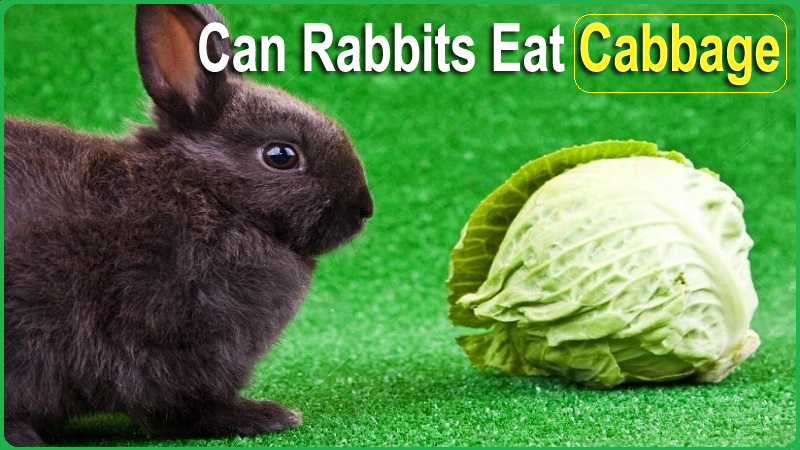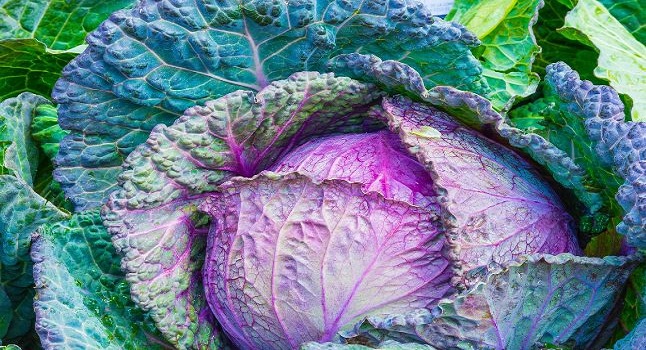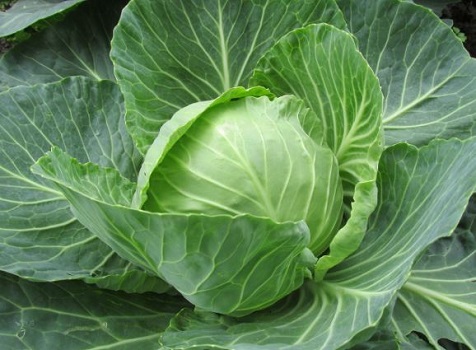Can rabbits eat cabbage? It is a most common question in among of rabbit owners. Although, cabbage is a nutritious vegetable for human beings, but you should be known whether or not it’s safe for bunnies to have.
As you know that rabbits are herbivores, so in their diet you should employ primarily of hay, fresh vegetables, and a small quantities of fruit. While cabbage is a vegetable that is good for rabbits to eat, but should be given in moderation. Too much cabbage can arise gas and bloating issues.
From this post, we will give you proper guide about bunnies and cabbage, as well as exploring you with the information you have to need for making a decision about feeding cabbage to your pet friend rabbit.
Is Cabbage Good for Rabbits?
Cabbage can be considering as healthy addition for your rabbit’s diet, if allowed in moderation. It consists vitamins C and K, as well as dietary fiber, in rich amount.
Many varieties are available in market, like as green, red, and Savoy cabbage that serve the diverse nutrients and flavors. Therefore, it can enhance a rabbit’s mealtime experience.
Should to introduce cabbage gradually and monitor for any signs of digestive distress, like as gas or bloating.

Avoid the over-consuming it, give a few leaves only 2-3 times in a week. Otherwise, it can get damage digestive system.
You should take consultation with a vet, before making significant dietary changes.
Benefits of Cabbage to Rabbits
Cabbage is beneficial for rabbit’s health, if add in their diet in moderation. Here are some key benefits:
Rich in Nutrients
Vitamins: Cabbage is packed with vitamins C and K. Vitamin C works as antioxidants that boost-up the immune system. But, vitamin K supports in blood clotting and bone health.
Also Read: Can Rabbits Eat Celery? Guide to Bunny Owners
Minerals: Cabbage also serves many important minerals like as potassium, calcium, and magnesium that perform various bodily functions, like as muscle and nerve function.
High Fiber Content
Cabbage has also dietary fiber that aids in maintaining healthy digestion and avoiding gastrointestinal problems. It also supports to rabbit’s digestive system active and functioning perfectly.
Antioxidants
Cabbage employs antioxidants like beta-carotene and anthocyanins; especially in red cabbage that helps for protecting the cells from damage and reduces inflammation.
Low in Calories
Cabbage is low in calories that making it a suitable treat for rabbits without getting to weight gain.
Hydration
Cabbage also consists high water content that helps in keeping rabbits hydrated that is crucial for their overall health and well-being.
Nutritional Value of Cabbage
Here, we are showing you the key nutritional values of cabbage for rabbits:
Also Read: Can Rabbits Eat Blueberries? Nutritional Benefits & Risks
| Nutrient | Amount Per 100g |
|---|---|
| Calories | 25 kcal |
| Carbohydrates | 5.8 g |
| Fiber | 2.5 g |
| Protein | 1.3 g |
| Fat | 0.1 g |
| Vitamin C | 36.6 mg |
| Vitamin K | 76 μg |
| Potassium | 170 mg |
Risks of Feeding Cabbage to Rabbits
There are some potential risks and precautions that rabbit owners should be aware of:
Gas and Bloating
Issue: Due to high levels of fiber and certain sugars (raffinose), can pose gas and bloating in rabbits.
Prevention: Feed cabbage gradually and in small quantities, and monitor how your rabbit’s digestive system reacts.
Digestive Upset
Issue: If, you change their diet at once, introduction of cabbage, then can arise diarrhea or other digestive issues.
Prevention: Always give new foods slowly, and mixing them with the current diet.
Calcium Content
Issue: Cabbage has not enough calcium as some other greens. So, excessive intake can lead to bladder sludge or kidney stones in rabbits.
Prevention: Serve cabbage with other low-calcium vegetables to prevent excessive calcium intake.
Potential Allergic Reactions
Issue: Some bunnies may have individual sensitivities or allergies to specific foods, including cabbage.
Prevention: Always keep eye on your rabbit for any signs of an allergic reaction, like as itching, swelling, or respiratory issues.
Oxalates
Issue: Due to rich content oxalates, can get to the formation of kidney stones.
Prevention: Allow cabbage in moderation, and you should varied diet to minimize the risk of oxalate build-up.
What Types of Cabbage can Bunny Have?
Rabbits can eat several types of cabbage, but it’s important to introduce them slowly and in moderation as part of a balanced diet. Here are the main types of cabbage that are safe for rabbits:
Green Cabbage
Green cabbage is the most common variety and is generally safe for rabbits to eat in small amounts.
It is enabled with fibre, vitamins C and K, and other beneficial nutrients.
Red Cabbage
Red cabbage can’t consider as safe for rabbits and colorful addition to their diet.
It has a similar nutritional profile to green cabbage but may be lower in calcium.
Savoy Cabbage
Savoy cabbage has crinkled leaves and a slightly sweeter taste compared to green cabbage.
It has mild flavor and tender texture, so it is best option for your bunnies.
Napa Cabbage (Chinese Cabbage)
Napa cabbage, also known as Chinese cabbage, is a popular choice for rabbits.
It also consists the mild flavor and tender leaves, so bunnies easy to eat.
How Much Cabbage can My Rabbit Eat?
When you come to feed cabbage to your rabbit, then portion control is key. Introduce cabbage should be slowly and given in moderation as an occasional treat, not as a staple food.
Also Read: Can Rabbits Eat Tomatoes? Risks and Benefits
As per expert, should not more than 1-2 tablespoons of chopped cabbage per 2 lbs of body weight per week.
Must be keeping monitor your rabbit’s reaction and stop, if occur any digestive issues like gas or diarrhea.
Cabbage should never replace the main components of a rabbit’s diet that are fresh hay and water.
Don’t delays to take consult with a veterinarian? If you have any concerns about your rabbit’s health.
Can Rabbits Eat Cabbage Stalks or Core?
Of Course! Bunnies can intake cabbage stalks and cores. But, they may not find them as appealing as the leaves. Although, the stalks and cores are safe for rabbits to eat, they are harder and less palatable than the leaves.
Whenever you do serve cabbage stalks or cores to your bunny; make ensure to chop them into small pieces to avoid choking hazards. Like as with any new food, feeding cabbage stalks and cores slowly and in moderation, and monitoring any bad reaction of rabbit.
If your rabbits don’t show any signs of digestive upset, then you can gradually increase the portion size. But, cabbage stalks and cores should never make up a large part of your rabbit’s diet.
Can Bunnies Eat Cooked Cabbage?
As a pet advisor, not recommend for giving cooked cabbage to rabbits. Rabbits’ digestive systems are developed to process raw vegetables and hay. So, cooked foods can upset their delicate balance.
After cooking cabbage, its texture and nutrient composition get alter, and potentially reducing its nutritional value for rabbits.
Besides of this, cooking food can provide the additional fats or seasonings that are not suitable for bunnies and may cause digestive problems.
Can I Give Cabbage Leaves to Bunny?
The answer is ‘Yes‘! You can feed cabbage leaves to your bunny, but do so in moderation. Cabbage leaves employ with highly vitamins and fiber that are beneficial for your rabbit’s health.
Also Read: Can Rabbits Eat Grapes (Leaves & Seeds)? Complete Guide
But, too much cabbage can cause gas and bloating issues due to its high fiber content. So, should introduce cabbage slowly, starting with a small piece and keep eye on your rabbit for any digestive upset.
Give cabbage leaves 2-3 times a week, balancing them with other leafy greens. But, always wash cabbage leaves thoroughly to eliminate any pesticides or contaminants before giving them to your bunny.
Can Baby Rabbits Eat Cabbage?
Always should avoid cabbage to baby rabbits. Until, they are at least 12 weeks old.
Their digestive systems are still developing, so it can be sensitive to the high fiber content in cabbage, potentially causing digestive issues like gas or diarrhea.
Until they reach 12 weeks, baby rabbits should primarily intake their mother’s milk, gradually transitioning to hay and pellets.
When they are old enough, then introduce cabbage slowly and in small amounts. Always ensure that any vegetables fed are fresh and clean.
Guidelines: Safely Feed Cabbage to Rabbits
Here are some guidelines for safely feeding cabbage to rabbits, follow them:
Introduce Gradually
Start with a small piece of cabbage to see how your rabbit reacts.
Gradually increase the amount if no adverse reactions occur.
Monitor for Reactions
Watch for signs of digestive upset, such as gas, bloating, or diarrhea.
If any symptoms appear, stop feeding cabbage.
Feed in Moderation
Limit cabbage to a few leaves 2-3 times a week.
Avoid making cabbage a primary part of the diet; it should be a supplement.
Balance with Other Greens
Include a variety of leafy greens in your rabbit’s diet to ensure balanced nutrition.
Other alternative best options include romaine lettuce, cilantro, and parsley.
Choose Fresh, Clean Cabbage
Always wash cabbage thoroughly to remove pesticides and contaminants.
Always offer fresh cabbage, avoiding wilted or spoiled leaves.
Avoid Cooked Cabbage
Only feed raw cabbage, as cooking changes its nutritional content and can upset your rabbit’s digestion.
Monitor Portion Size
Stick to small portions to prevent overloading the digestive system.
A few small leaves per feeding are sufficient.
Include Different Varieties
Offer different types of cabbage (green, red, Savoy, Napa) for variety and different nutrients.
Pay Attention to Age
Do not feed cabbage to baby rabbits under 12 weeks old.
Their digestive systems are not ready for it.
Consult with a Veterinarian
Before making significant changes to your rabbit’s diet, seek advice from a veterinarian.
Best Alternatives to Cabbage for Rabbits
Here, we will show you some alternatives to cabbage for rabbits:
Final Thoughts
As result of this article, yes, rabbits can eat cabbage. It has a lot of most beneficial nutritious for well-health to bunnies. It comes in a best source of antioxidants, vitamins, minerals, fiber, and water content.
If you see that your bunnies no show any negative reaction to cabbage, then you can feel free to give it a few times a week. But, moderation is key here.
Also Read: Can Rabbits Eat Peas? {Yes and No} Complete Guide
Do you have any experience, tips, tricks, or query regarding on this? You can drop a comment!
Have a Nice Day!






